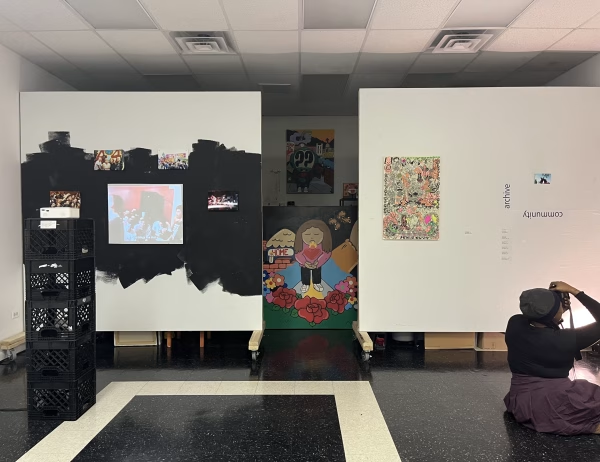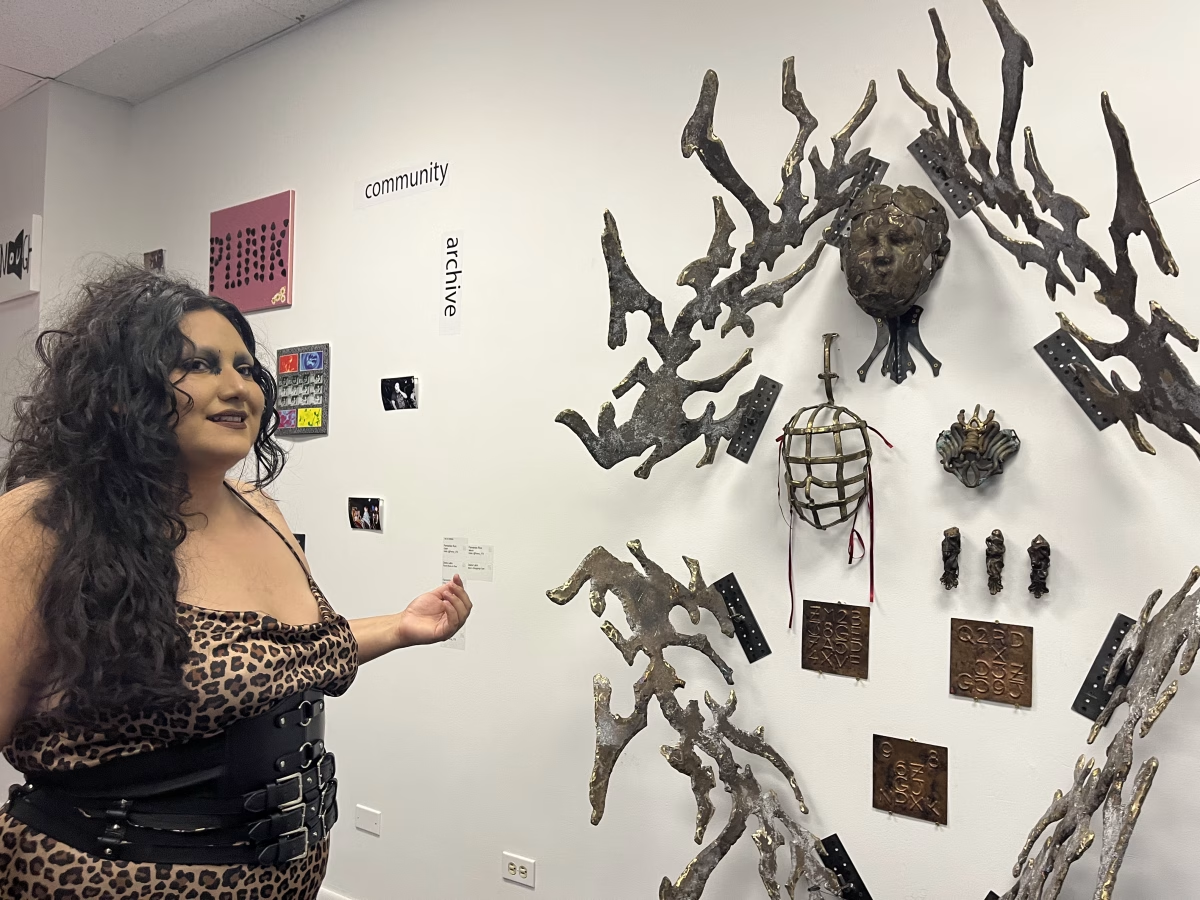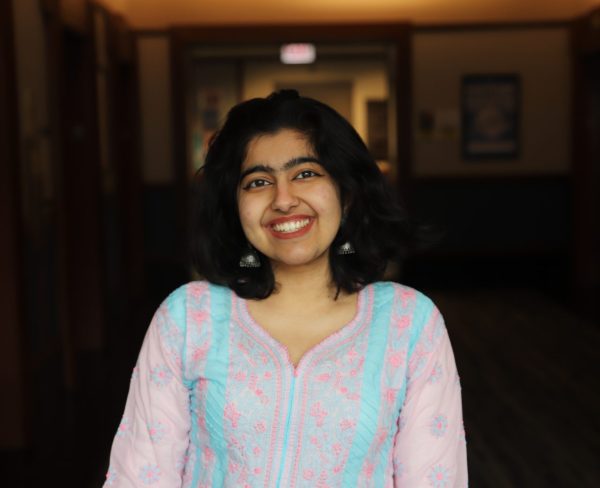For those who know the Latine punk scene, Los Crudos will not have escaped their notice.
The Spanish-language hardcore punk band began playing in Chicago in the early ‘90s. Their songs grappled with themes of immigration, homophobia and border issues.
Recently they became an inspiration for Maya Ortiz Saucedo, curator of ‘desde afuera,’ an exhibition currently showing at Grounded Studio in Little Village.
Taken directly from one of the band’s song lyrics, the exhibition serves as a promotion for Brian Herrera’s film ‘Ask a Punk.’ The film is part of the production company Full Spectrum Features’ Community Storytellers Program which organized the exhibition to draw attention to the film before it is screened at the Gene Siskel Film Center.
‘Ask a Punk’ is a coming-of-age story about a non-binary teenager embracing punk culture while they butt heads with their Latina grandmother.
Herrera said that this story is important to him because he wished he had seen something like this when he was growing up.
“I just don’t think we have enough stories about it,” he said. “Not an archive about punk itself, especially from the Latino community. So I think it’s really important to archive it and immortalize it.”
For Herrera, punk is a way of seeing the world around him. It is about finding a safe space while prevailing and surviving as an immigrant.
“It means somewhere where you can be yourself, where you don’t have to worry about money, you don’t have to worry about anything,” he said.
He added that the film is one people can relate to, not just because it’s about a specific community, but because it’s about a teenager discovering themselves and the different facets of their identity.
“A lot of people are going to relate even with the relationship that you see in the film that the teenager has with the grandma, and we’re going to be like, ‘Oh, my parents have told me that before,’” Herrera said.
Teresita Carson, an artist and filmmaker, helped Herrera write the screenplay. She wanted the film to be different and to turn stereotypes about familial dynamics “on their head,” she said.

“The story is about a grandma and a girl grieving separately, and at the end they grieve together and they find common ground in punk,” she said.
Carson had always been interested in punk and she was excited when she found out that the exhibition would be in Little Village.
“I’ve always wanted to have that exposure to people from the Mexican community here,” she said.
Debuting the exhibition in Little Village was important to Saucedo because community members get the opportunity to engage with punk art created by their own peers, they said.
“It’s very much been absent from art spaces and isn’t considered art, but it is important documentation of how important punk is, especially in Little Village and Pilsen,” Saucedo said.
To curate this exhibition, Saucedo listened to all of Los Crudos’ songs and read the lyrics to come up with the theme. They realized that a lot of the political issues that were relevant then are still relevant now.
“There’s still these same anti-immigration sentiments,” they said. “Latinos are still being left out of the punk scene. There’s still US imperialism intervention in Latin America.”
Since punk has always been anti-establishment, it has been a way for communities outside of white and Western institutions to create solidarity, Saucedo said.
“Our goal is also helping communities think about punk as a way to help liberate themselves and to be a comforting space where they can have these frustrations and voice them,” they said.
This exhibition will be followed by a live punk show on Nov. 1 in Little Village. Following the show, Herrera’s film ‘Ask a Punk’ will be screened at the Gene Siskel Film Center.
Chile Ochoa, Senior Programs Manager at Full Spectrum Features, oversees the Community Storytellers Program and was excited to include Herrera’s film because of its queer representation and generational inclusivity.
“There’s an existing rich history here in Chicago that deserves to have a space to highlight it. The messiness, the beautiful aspects of it, the chaoticness and just the resilience,” they said. “We’re here, we’re queer, we’re different, we deserve space, and this is how we can express ourselves.”
‘Desde Afuera’ will be exhibited in Little Village until Oct. 19.



